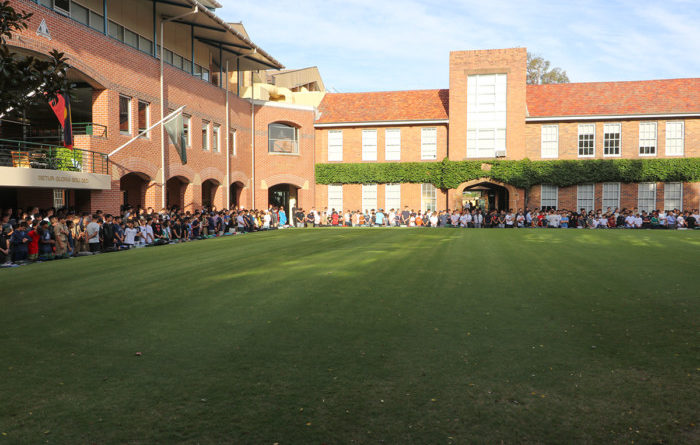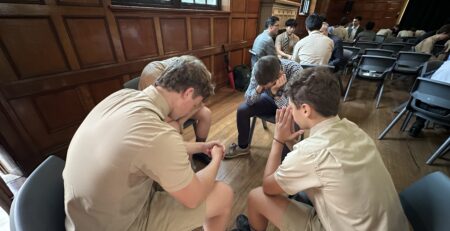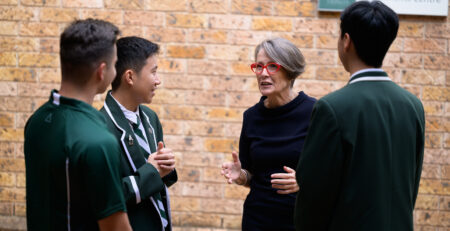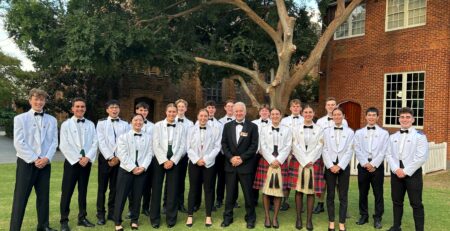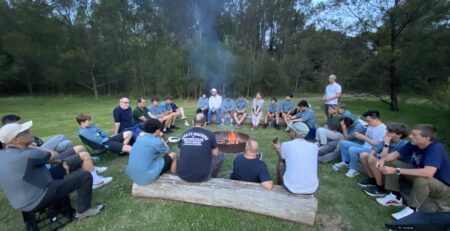Head Master challenges boys to tackle gender inequality
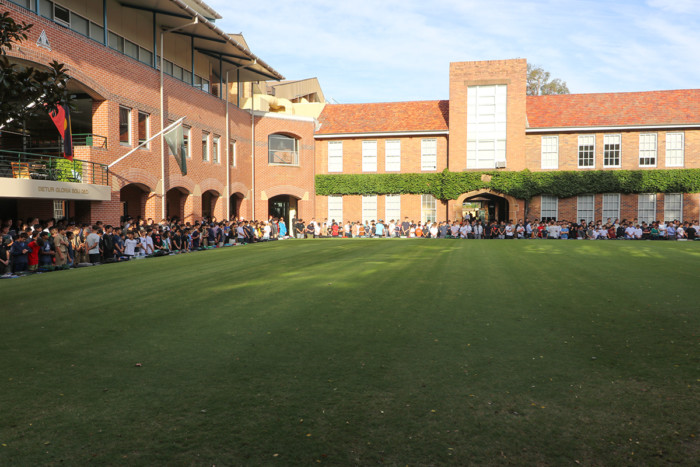
Head Master Tim Bowden today challenged Trinity boys to help tackle gender inequality “right here, right now”.
In a speech continuing from yesterday’s International Women’s Day, he said inequality between the sexes was likely to be an ongoing challenge that vexed society.
“It’s a global issue but the action we take to fix it will be local.
“I want you to take the responsibility for that action as and when you can,” he told students at morning assembly, many of them dressed in mufti to raise funds for the Country Women’s Association.
“Each person gathered around this quad will have a role to play in making our community a more equable place.
“We need to put our global perspective into action locally, right here, right now.”
The Head Master said a single-sex education provided many advantages, but it also meant Trinity boys did not often hear the voices of their female peers.
“This lack of familiarity with the female voice can lead to a lack of empathy, a lack of understanding and ultimately a lack of respect.
“The reality is you need opportunities to work together with girls, learning to engage with them as people, to respond to their lead and take responsibility for leading them, to cooperate and collaborate with them and put into practice the respect for all people we talk about so often.”
He said this was one of the reasons Trinity had invited girls from sister school Meriden to join in its Australian Army Cadet Corps, with around 200 girls coming to the Summer Hill campus once a week.
He asked students: “Have you ever wondered what that is like for them? Coming to our space to be surrounded by us in all our numbers, traditions and ways of being?”
Meriden’s 2020 school captain Gen McKeown, a platoon commander in her second and final year of cadets, has been invited to be the keynote speaker at Trinity’s Thursday assembly.
“In hearing her voice I hope you begin to understand how one of your female peers has experienced interacting with others in this place,” the Head Master said.
“Because we do learn to empathise by imagining ourselves in someone else’s shoes.”

